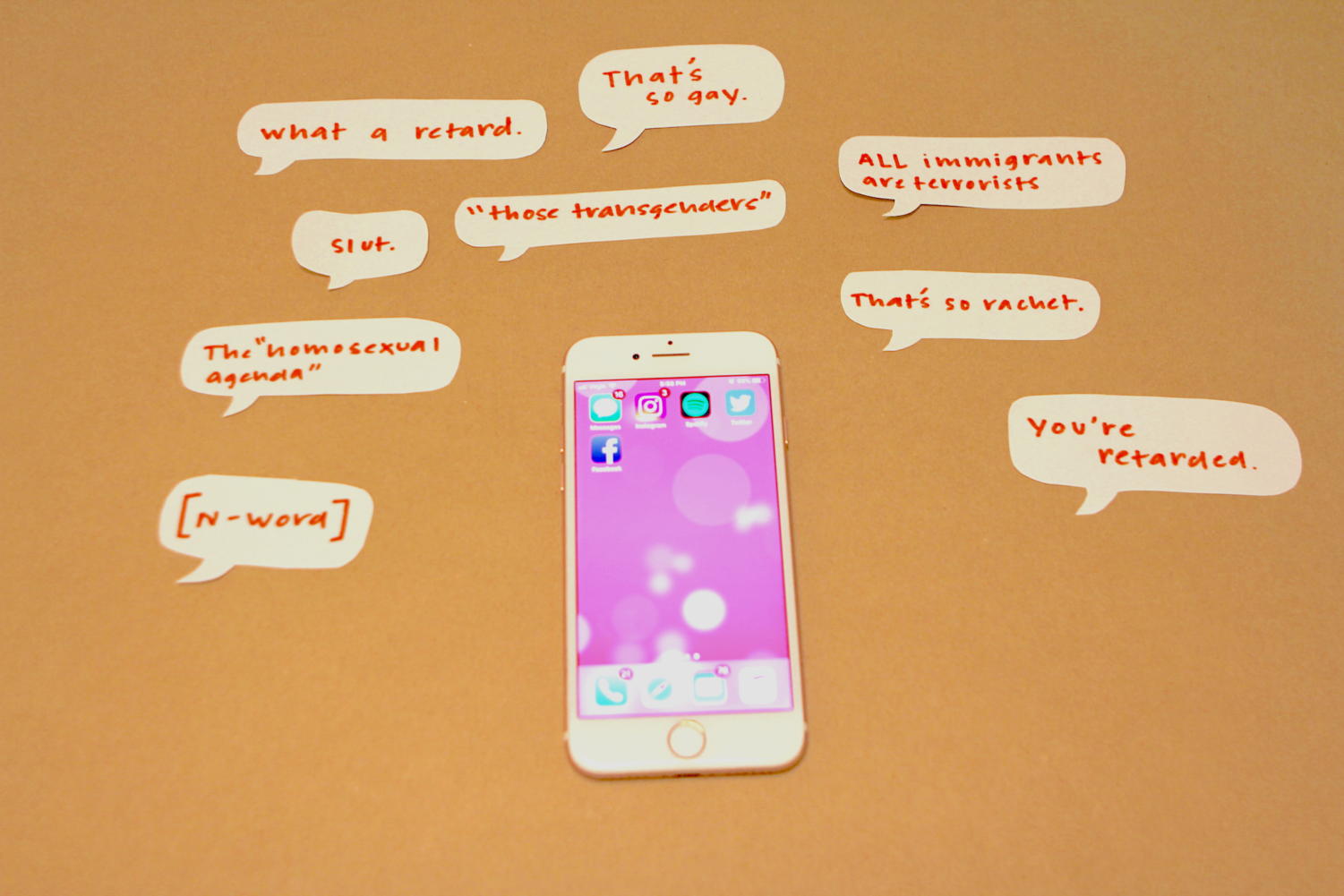“That’s so gay.”
You are walking down the school hallway on a typical day. You pass through a group of kids clustered around a locker and hear various racial slurs. You turn the corner and hear more offensive language that is always justified as being “just a joke.” This type of language is still prominent and acceptable in schools even though the rest of society has moved on.
With the rise of movements such as #MeToo, Time’s Up, and Black Lives Matter, which pushed into mainstream media within the last two or three years came the increase of political correctness. All of these movements have made a considerable difference in breaking the stigma against these issues and allowing conversations to take place. This has also caused a shift in what society deems as “acceptable language,” otherwise known as political correctness.
Political correctness is the avoidance of actions of hate or discrimination against minorities and socially disadvantaged groups.
“I think that all of the movements are very important in spreading awareness about such untalked about issues. Some of these movements deal with minorities while others deal with oppressed groups on topics such as racial equality,” said Varsha Raj, a sophomore.
Although it seems like a good idea on paper, many Americans are dissatisfied with the concept of political correctness. A 2018 survey conducted by More In Common, an international initiative that strives to fight polarization, concluded that around 80 percent of Americans believe that the push for political correctness is an issue.
Despite these statistics, the general public has still been pushing for more political correctness through social movements. Most of society in the past years have witnessed a change in speech, thoughts, and ideas as a result of these movements and discussions.
But not all of society has moved on.
Although this progression may be the case for the real world, these claims cannot be made the case for high school environments.
There is a bigger discrepancy between the real world and a school environment surrounding political correctness. Principal Ralph Crame does not see much of this from his perspective, as students are well aware that this type of hurtful speech is wrong and is not tolerated.
“We don’t see this often because, from my experience, this type of conversation between students is often during the unstructured, unsupervised time like at lunch, before school, or after school,” Crame said. “I do think students are expected to be respectful of others in regards to being politically correct when they are under the supervision of the adults on campus.”
This does not mean these types of conversations do not take place.
There is less stigma around saying offensive statements against minorities because various slurs and offensive statements have been normalized by popular culture.
“I think all racial slurs are offensive unless people of that race say it. It’s unfortunately so embedded in our generation and culture: teenagers hear this stuff in songs, see it on social media, and even their friends say it,” said Maria Valle Remond, a freshman.
This type of popular culture includes racial slurs portrayed through music, irresponsible content creators on the internet, and social media, where teenagers are able to say anything without repercussions.
Today’s children are beginning to be integrated into the social media world at a younger age. This allows the messages of popular culture to be ingrained in children’s minds at an even earlier point in life.
A study done by the American Academy of Pediatrics (AAP) concluded that music and lyrics have a profound impact on the socialization of children. This study shows that popular music has a large effect on behavior and emotions.
Social media also allows children to have potentially bad outside influences at a particularly impressionable age. According to a study by the National Center for Biotechnology (NCBI) on age differences in resistance to peer pressure, teenagers ages 14-18 are the most impressionable by social media at this highly developmental stage in their lives.
In addition, teenagers are enabled to speak about anything without repercussions. On the internet, there is a prevalence of jokes about serious topics such as suicide.
Valle Remond believes that there is a lack of seriousness surrounding political correctness.
“I think that it is a problem, people are saying things that aren’t okay because they don’t understand the seriousness of those things,” Valle Remond said. “Some people have gone to extremes and have been making jokes about offensiveness so that people have stopped taking it seriously.”
Raj has a different view on how the world is responding to political correctness, regarding the progress that society has made.
“I think that all of these [social movements] say that people are well aware of the taboo issues that exist and are attempting to act upon it, showing an equal society in all aspects,” Raj said.
Although there is discrepancy over whether or not there is a significant problem, there is always room for improvement.
As the principal of a high school, Crame strives to develop a school environment that does not experience these issues.
“I would like to see a school environment free from all of this. This would take more education for not only the students but also the societal influences that are so impressionable on today’s teenagers,” Crame said.
Society has already made important progressions since the #MeToo, Black Lives Matter, and Time’s Up movements began to gain traction. These movements broke the stigma surrounding these issues and the nation responded. Moving forward, society will continue to grow and change alongside these social movements.
“I think that these movements are definitely going to keep happening and are going to inspire many more people.” Valle Remond said. “Hopefully one day people will be on the same terms about what’s okay and what’s not okay to be said.”


